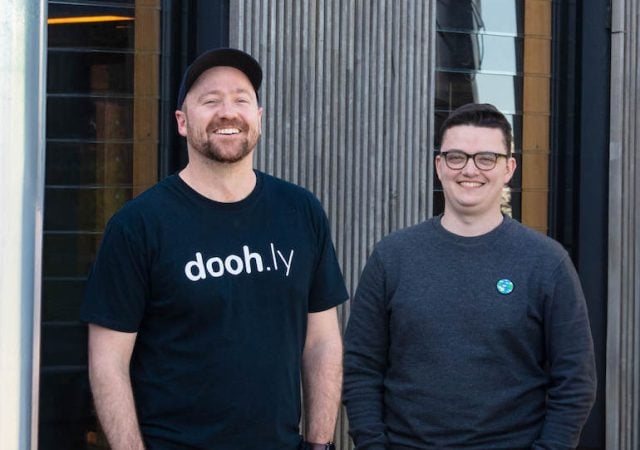After three years of pandemic, many hoped 2023 would be the year when things finally got better.
But from what we saw, a lot of people couldn’t put 2023 in the bin fast enough and start a new year. Nonetheless, there’s always a highlight, so we asked five leaders in tech and venture capital for their favourite moment during the year gone and what they’re looking forward to and their ambitions for 2024.
Here’s what they said.
Barb Hyman
Founder and CEO, Sapia.ai
The best thing that happened in 2023
I finally achieved a dream of representing Australia in something. Sapia.ai this year won the KPMG Innovators Award and I got to represent Australia at the global event in Lisbon, Portugal. Sapia.ai is one of three companies — that I know of — in Australia pioneering AI via the creation of our own natural language database.
Interest in AI has also reached a point where major companies are knocking down our door in curiosity. We’re seeing a massive step-change in HR teams willingness to embrace AI in the hiring process too.
I also got engaged. What a whirlwind of a year.
What I’m looking forward to in 2024
Listening to more of my favourite podcast, Acquired. It’s a deep-dive series into the history and listings of some of the world’s most respected companies. A must-listen for any founder.
But more broadly, ending this idea that you need to see someone to hire someone. The COVID era brought about this idea that you don’t need to see someone to know that they are working for you. That’s now extending to the hiring process.
One thing I want to change in 2024
I really want to kill the resume. It’s a piece of paper, it says nothing of who you are and what you are capable of. Interviews aren’t much better, but at least they are harder to fudge than a simple document. AI-based systems are the hardest to trick, as it’s a data-based comparison. We’re just starting to kick the resume out of the job application process now, and I hope 2024 will be the last of it.
Also, the driving skills of my 16 year-old. Need to try and find more time for lessons.
Will Richardson
Managing partner, Giant Leap
Best thing in 2023

Will Richardson
Managing Partner, Giant Leap Fund
A number of our team welcomed healthy baby girls and boys this year, which is always a milestone in my book.
There were plenty of well earned promotions within our team too — its very rewarding to see others progress in their careers.
But, looking at the fund, I’m grateful for the support from our investors that we reached final close for Giant Leap II.
What I’m looking forward to in 2024
Seeing where the market goes next year. I think our team will return back from the summer break energised and ready to go.
My mind races thinking about all the fascinating innovations we will see next year in climate, education and health. I’m keen to see what founders can come up with to address some of the biggest challenges of our generation.
One thing I want to change in 2024
We want to deepen the Australian impact industry’s connection to its global counterparts. We aren’t behind by any means.
But there’s still work to be done in ensuring that companies founded in our ecosystem have the ability to share knowledge and opportunities from abroad.
That may also mean investing in companies outside of Australia in turn, which is an exciting prospect in itself. One of the fundamental challenges with this is building a relationship of trust and mutual benefit at a distance — perhaps something we can solve for in an era where more work is undertaken remotely.
David Fairman
Chief Information and Security Officer, APAC, Netskope
Best thing in 2023

David Fairman
Chief Information and Security Officer, APAC, Netskope
To me 2023 has been a great cybersecurity wake up call.
When you are a cybersecurity professional and witness large scale data breaches and cyber incidents impacting our country and citizens throughout the year, it can be disheartening and sometimes makes you wonder if the years spent raising awareness of the problem were not in vain.
But this chaos led to positive outcomes as well, with boards of directors genuinely displaying awareness and proactivity in discussing and mitigating cyber risk, and educating and upskilling themselves on the matter more so than ever before.
And it has no doubt been a catalyst for our government to tackle the issue head-on, and collaborate with the industry to deliver the great Cyber Security Strategy they published a few weeks ago, which I believe gives a pragmatic path forward for cybersecurity progress across the board in the upcoming years.
What I’d like to see in 2024
Wars have historically played out on land, sea, and air, but the digital domain is fast emerging as the latest battleground.
As we approach 2024 – and beyond – major geopolitical confrontations increasingly involve cyber elements, and unfortunately, cyber conflicts and actions usually continue even after peace agreements are reached.
Just as peace treaties are negotiated for conventional wars, in 2024 there is potential for “Cyber Peace Agreements” between nations ideally governed by international law and peacekeeping entities.
One thing I’d like to change
Mass consumption of AI is a powerful advancement in technology – and probably the most transformational one in the past several decades – but we need to ensure a balance is struck between supporting innovation in the space, and ensuring AI is used and developed in ethical and responsible ways, with privacy at the core.
AI regulations are already under scrutiny and have been developed in several jurisdictions, and the EU AI Act is in my opinion a major step towards enforcing responsible AI.
But this is only the first step in ensuring high and consistent ethical AI standards across the globe, and in 2024 I’m hoping to see more proactivity from regions across the globe in establishing stronger AI regulatory frameworks.
Chris Dahl
Cofounder, Pin Payments
Best thing that happened in 2023

Chris Dahl, Pin Payments
Without a doubt, the best part of 2023 for me was Collingwood winning the AFL premiership.
It’s great to share moments like those with my team in Melbourne and to be reminded life is about more than just work.
From a business perspective, the widespread uptake in the use of AI has been exciting for business owners, who have only just begun to understand its capabilities and have had a glimpse into how it might enhance their scalability and operations in the future.
What I’m looking forward to in 2024
Becoming an Everlab customer. I enjoy focusing on fitness and health, and after reading Peter Attia’s Outlive earlier this year I’ve been searching for something like Everlab to learn more about my body and wellbeing.
Everlab just recently closed a $3m pre-seed round, which shows the appetite investors have for startups which aim to disrupt and modernise traditional industries.
The one thing I want to change in 2024
As a relatively new Co-CEO, the one thing I want to do better in 2024 is to switch off.
With modern tech we’re online all of the time, so finding a place where you can unplug is challenging.
For me, the driving range is the perfect place to escape for a few hours on the weekend and I’m looking forward to making that more of a priority in the new year.
Anthony Bekker
Cofounder and MD, APAC, BizTech Lawyers
Best thing that happened in 2023

Biztech Lawyers APAC MD Anthony Bekker. Photo: Mark Bond
Contrary to some speculations, the significant increase in ‘down round’ investments—where a company is valued lower than in previous funding rounds—has only occurred at a very limited scale.
The cause appears to be the complexity of the capitalisation tables (cap tables) of many growth-stage companies.
These complexities include various classes of stock, investor rights, and previous valuation benchmarks, making down rounds a challenging and often unattractive option for both companies and investors.
Instead, we’ve seen the emergence of strategic consolidations to consolidate assets and cash reserves and streamline operational costs in a more cautious investment climate.
In this new environment, startups and growth-stage companies are reevaluating their strategies. The focus has shifted from rapid expansion, often at the expense of profitability, to sustainability and efficiency.
This shift marks a departure from the previous trend where startups burned through cash with the expectation of continuous funding rounds.
What I’m looking forward to in 2024
The impact of Government Policies playing out is what we’ve got our eyes on. The regulation of critical and emerging technologies used for defence purposes, and those with a dual commercial and defence-related use, with AUKUS countries increasingly taking a ‘walled garden’ approach on defence and dual-use tech, will be a major theme.
In just the last few weeks, Australia has moved legislation into Parliament, the Defence Trade Controls Amendment Bill 2023, to establish an export control regime that is comparable to the one the restrictive ITAR regime administered in the United States.
This regime, touted as facilitating technology transfer between AUKUS partners (which is likely to be unidirectional, from the US, not bidirectional, in any event), would potentially stifle Australia’s capacity to act as a regional defence leader.
The Bill also raises concerns given it introduces strict liability offences, creating criminal penalties for even inadvertent breaches, including for supplying DSGL dual-use technologies within Australia to foreign persons, including those already employed in Australia.
Many tech businesses have built their teams in compliance with current laws but now face potential criminal penalties or loss of critical foreign staff.
The 12-month transition period and permit processes for non-exempt countries offer some relief, but there’s uncertainty about permit application assessments, conditions, and integration with visa processes.
The changes will create hurdles for innovative, non-traditional industry players who are essential for driving technological advancements. These unique non-market rules not only add to complexity and time, but they also massively drive-up regulatory compliance costs.
One thing I want to change in 2024
We’d like to see some more sober conversation about what AI means for our industries, our economics and our democracies.
McKinsey’s estimates reflect the massive economic potential of Generative AI. McKinsey said the technology could generate between US$2.6 trillion to US$4.4 trillion annually across more than 60 use cases they looked at, from automating routine tasks to enhancing creative processes, thereby contributing significantly to global economic growth.
It is argued however that this transformation comes with the potential cost of job displacements, particularly in roles that are routine and predictable.
Meanwhile, Gartner’s analysis points to the typical lifecycle of emerging technologies. The initial excitement often leads to inflated expectations, which are then tempered by practical challenges and limitations in implementation.
This ‘trough of disillusionment’ phase is a critical period of adjustment, where the hype gives way to more realistic assessments and sustainable development strategies.
We hope early in 2024 there is a clear signal about what the opportunity is with AI so we can make better informed decisions about our investments in it and our reservations against it.




















Trending
Daily startup news and insights, delivered to your inbox.